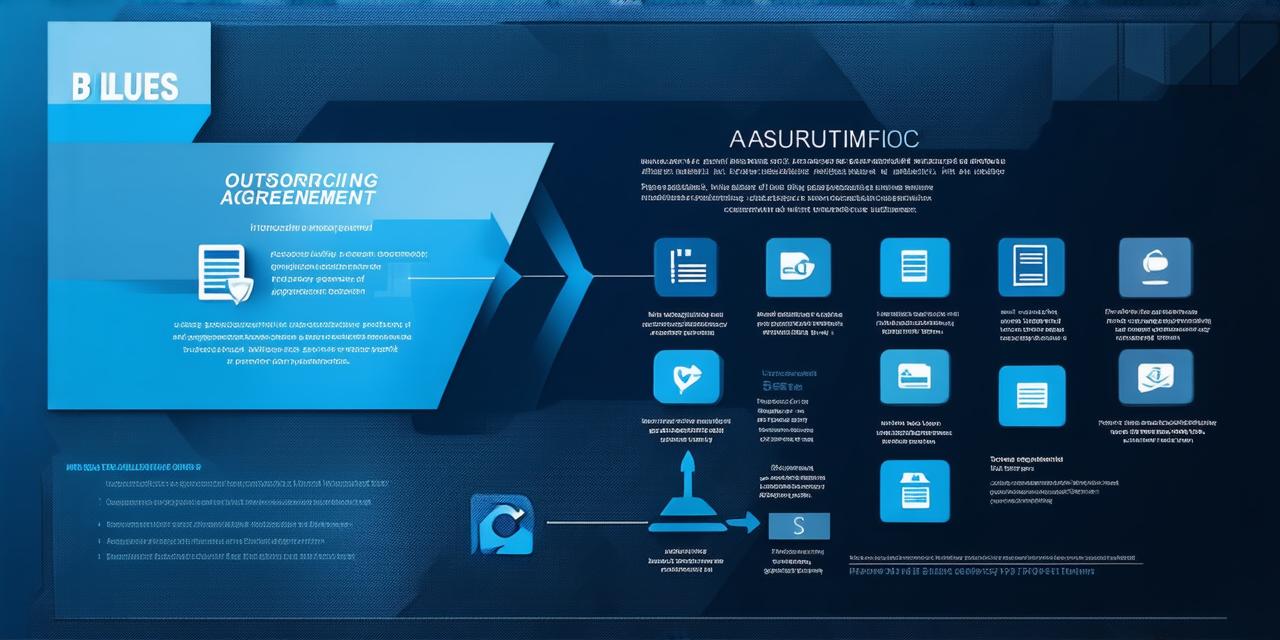1. What is an Outsourcing Services Agreement?
An outsourcing services agreement is a legal document that outlines the terms and conditions of a business relationship between two parties – the client and the provider. It specifies the scope of work, deliverables, timelines, payment terms, confidentiality, data protection, and other important aspects of the partnership.
2. Types of Outsourcing Services Agreements
There are several types of outsourcing services agreements, including:
- Time and Materials Agreement (TMA): This agreement is based on the provider charging clients for each hour worked or for each task completed. The TMA provides flexibility in terms of resources allocated to a project and pricing based on actual costs. It is ideal for projects with unclear or changing requirements.
- Fixed Price Agreement (FPA): In this agreement, the client pays a fixed price for the services delivered by the provider. It is ideal for projects with well-defined requirements and scope of work. The provider assumes all risks associated with project delivery and pricing.
- Cost Plus Agreement (CPA): This agreement allows the client to pay only for the actual costs incurred by the provider in delivering the services. It provides flexibility in terms of resource allocation and pricing, but it can lead to higher costs if not managed effectively.
- Performance-Based Agreement (PBA): In this agreement, payment is based on the provider’s performance against predefined metrics or goals. It is ideal for projects that require specific outcomes or results. The provider assumes all risks associated with project delivery and pricing.
- Outsourcing Managed Services Agreement (OMSA): This agreement provides ongoing management of a client’s IT infrastructure, applications, and data. It is ideal for organizations that want to outsource the management of their technology environment.
- Business Process Outsourcing Agreement (BPOA): In this agreement, the provider takes over a specific business process, such as customer service or accounting, from the client. It is ideal for organizations that want to focus on their core competencies while outsourcing non-core tasks.
3. Key Elements of an Outsourcing Services Agreement
An outsourcing services agreement should include the following key elements:
- Scope of Work: This section outlines the specific services that the provider will deliver to the client. It should include a detailed description of the work, timelines, milestones, and deliverables.
- Payment Terms: This section specifies how the client will pay the provider for the services delivered. It should include the payment schedule, payment amounts, and any additional fees or charges.
- Confidentiality: This section ensures that both parties maintain the confidentiality of each other’s sensitive information. It should include provisions for data protection, non-disclosure agreements, and breach of confidentiality clauses.
- Intellectual Property Rights: This section outlines ownership of intellectual property rights related to the project. It should include provisions for copyrights, patents, trademarks, and other proprietary information.
- Termination: This section specifies the conditions under which either party can terminate the agreement. It should include provisions for notice periods, cause for termination, and any penalties or liabilities associated with termination.
- Governing Law: This section specifies the law that will govern the interpretation and enforcement of the agreement. It is essential to choose a law that both parties are comfortable with and that provides adequate protection for their interests.
- Dispute Resolution: This section outlines the process for resolving disputes between the client and provider. It should include provisions for mediation, arbitration, or litigation.

4. Can I Terminate My Outsourcing Agreement?
Yes, you can terminate your outsourcing agreement if certain conditions are met. The termination process will depend on the specific terms of the agreement. You may need to provide notice to the provider in accordance with the agreement’s termination provisions, and you may be required to pay any termination fees or penalties specified in the agreement.
5. Who Owns the Intellectual Property Rights in an Outsourcing Agreement?
The ownership of intellectual property rights will depend on the specific terms of the agreement. In general, the client will retain ownership of any pre-existing intellectual property and may transfer ownership of any proprietary information developed during the project to the provider upon successful completion of the project. The provider may also have the right to use any non-proprietary information created during the project for future projects with the client’s consent.
Conclusion
In conclusion, an outsourcing services agreement is a crucial document for any business that wants to establish a successful partnership with a third-party provider. It is essential to choose the right template based on your business goals, budget, and service requirements. Additionally, it is crucial to ensure that the agreement includes all key elements, such as scope of work, payment terms, confidentiality, intellectual property rights, termination, governing law, and dispute resolution. By following these guidelines, businesses can establish a strong foundation for their outsourcing partnerships and achieve their desired outcomes.
